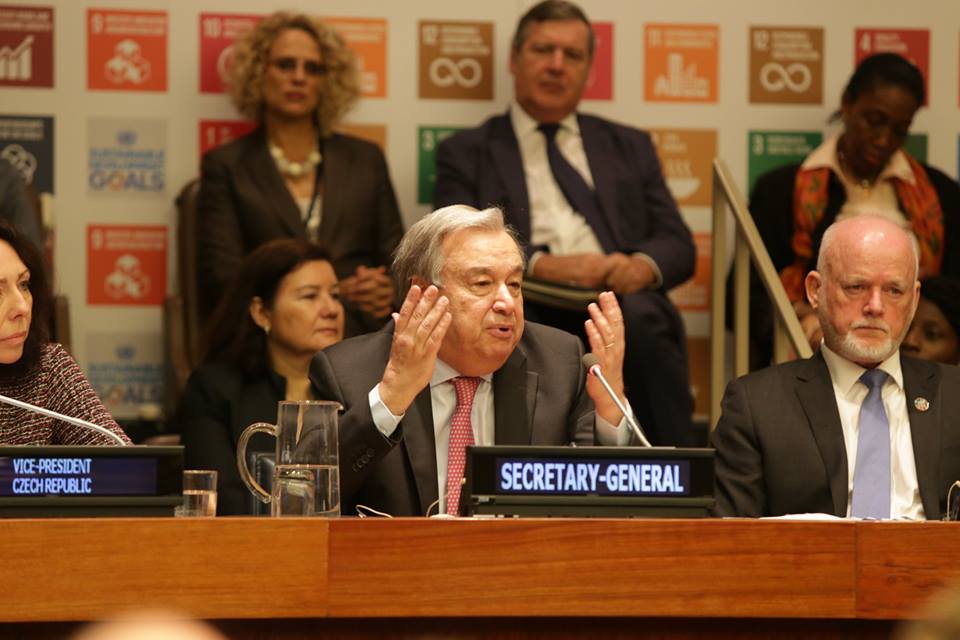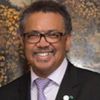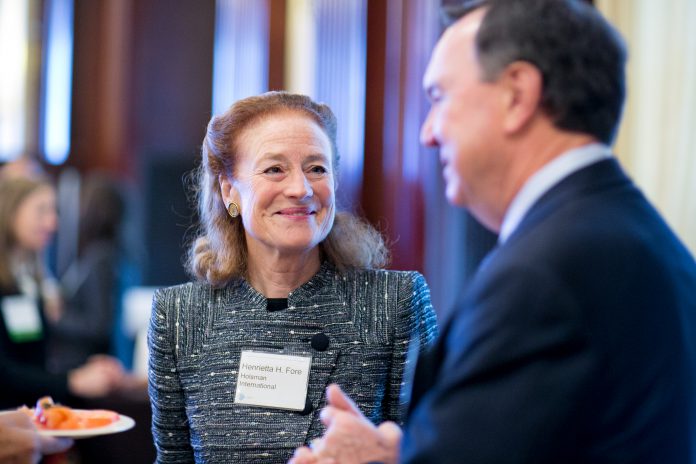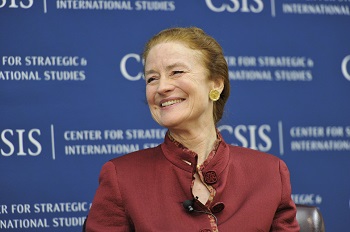Notice: Undefined index: catFilterList in
/home/zambi/public_html/wp-content/plugins/wp-likes/api.php on line
243
Post Views: 1,513
https://www.facebook.com/beate.wedekind/videos/10215721316878571/
ASTANA, KAZAKHSTAN (25 October 2018) – United Nations Member States today unanimously agreed to the Declaration of Astana, vowing to strengthen their primary health care systems as an essential step toward achieving universal health coverage. The Declaration of Astana reaffirms the historic 1978 Declaration of Alma-Ata, the first-time world leaders committed to primary health care.

Mr. António Guterres, Secretary-General of the United Nations — at United Nations.
“Today, instead of health for all, we have health for some,” said Dr. Tedros Adhanom Ghebreyesus, Director-General of the World Health Organization (WHO). “We all have a solemn responsibility to ensure that today’s declaration on primary health care enables every person, everywhere to exercise their fundamental right to health.”

Dr. Tedros Adhanom Ghebreyesus, Director-General of the World Health Organization (WHO)
While the 1978 Declaration of Alma-Ata laid a foundation for primary health care, progress over the past four decades has been uneven. At least half the world’s population lacks access to essential health services – including care for noncommunicable and communicable diseases, maternal and child health, mental health, and sexual and reproductive health.
“Alth1to 6 million children die every year before their fifth birthday mostly from preventable causes, and more than 150 million are stunted,” said Henrietta Fore, UNICEF Executive Director. “We as a global community can change that, by bringing quality health services close to those who need them. That’s what primary health care is about.”

Henrietta H. Fore at EQF Chairman Dinner February 24, 2014 Photo by Paul Morse
The Declaration of Astana comes amid a growing global movement for greater investment in primary health care to achieve universal health coverage. Health resources have been overwhelmingly focused on single disease interventions rather than strong, comprehensive health systems – a gap highlighted by several health emergencies in recent years.
“Adoption of the Declaration at this global conference in Astana will set new directions for the development of primary health care as a basis of health care systems,” said Yelzhan Birtanov, Minister of Health of the Republic of Kazakhstan. “The new Declaration reflects obligations of countries, people, communities, health care systems and partners to achieve healthier lives through sustainable primary health care.”
UNICEF and WHO will help governments and civil society to act on the Declaration of Astana and encourage them to back the movement. UNICEF and WHO will also support countries in reviewing the implementation of this Declaration, in cooperation with other partners.
The Global Conference on Primary Health Care (http://www.who.int/primary-health/conference-phc) is taking place from 25-26 October in Astana, Kazakhstan, co-hosted by WHO, UNICEF and the Government of Kazakhstan. Participants include ministers of health, finance, education and social welfare; health workers and patient advocates; youth delegates and activists; and leaders representing bilateral and multilateral institutions, global health advocacy organizations, civil society, academia, philanthropy, media and the private sector.

A file photo of Henrietta Fore from October 2011. On New Year’s Day, Ms. Fore takes office as UNICEF’s Executive Director.
The Declaration of Astana (http://www.who.int/primary-health/conference-phc/declaration), adopted at the conference, makes pledges in four key areas: (1) make bold political choices for health across all sectors; (2) build sustainable primary health care; (3) empower individuals and communities; and (4) align stakeholder support to national policies, strategies and plans.

Christian Lindmeier, World Health Organization
For more information, please contact:
Christian Lindmeier, World Health Organization, Geneva, +41 79 500 6552, lindmeierch@who.int
Sabrina Sidhu, UNICEF, New York, +1 917 476 1537, ssidhu@unicef.org
Precious M-Habeenzu, UNICEF Zambia, +260-211-374200 Ext: 2024, phabeenzu@unicef.org
Kevin Short, Global Health Strategies, New York and Astana, +1 949 838 5122, kshort@globalhealthstrategies.com
 Be the first to like.
Be the first to like.























